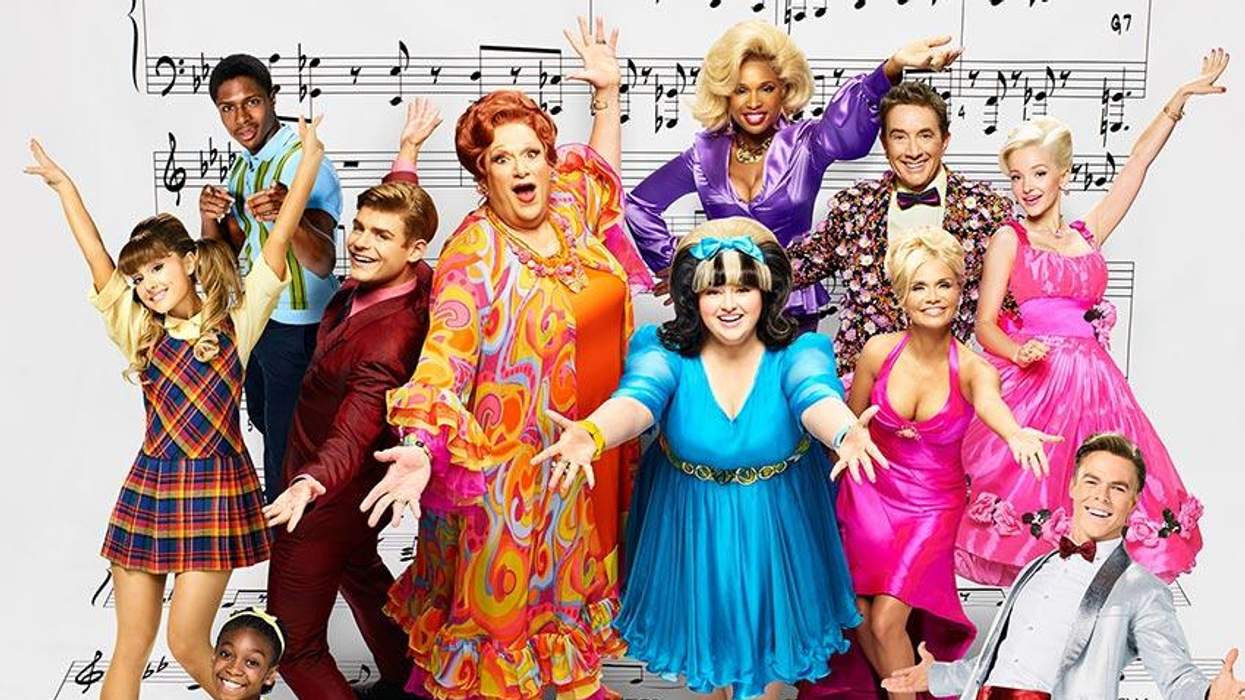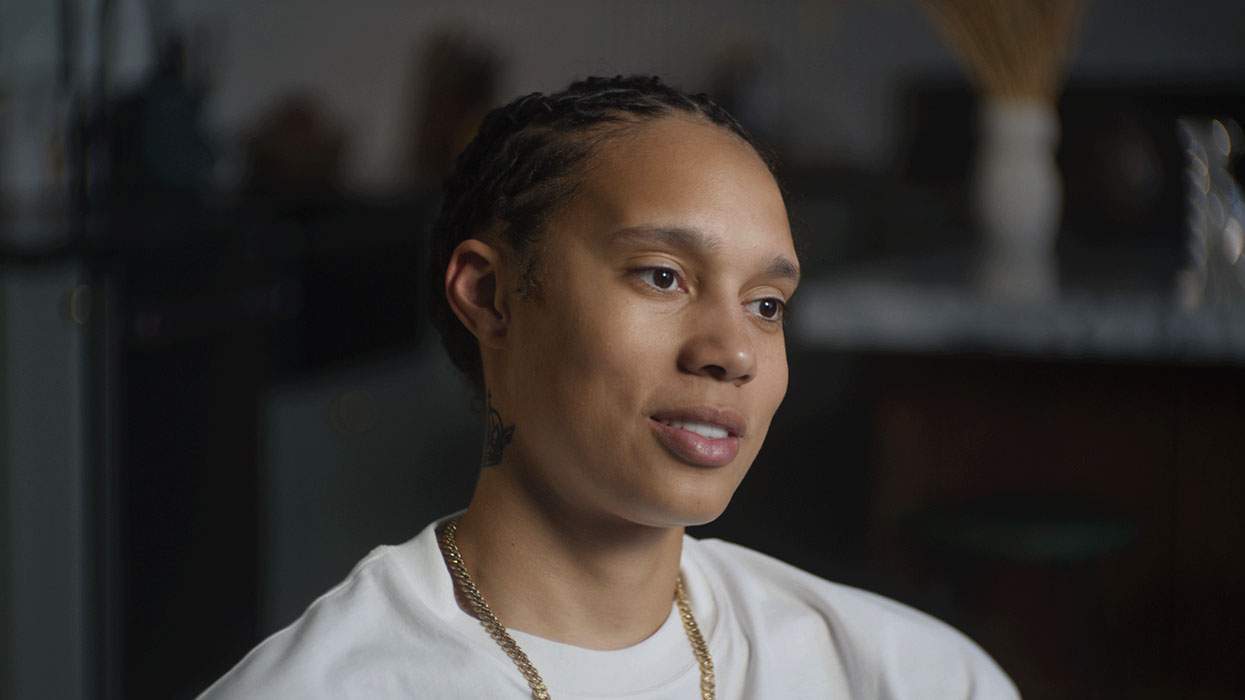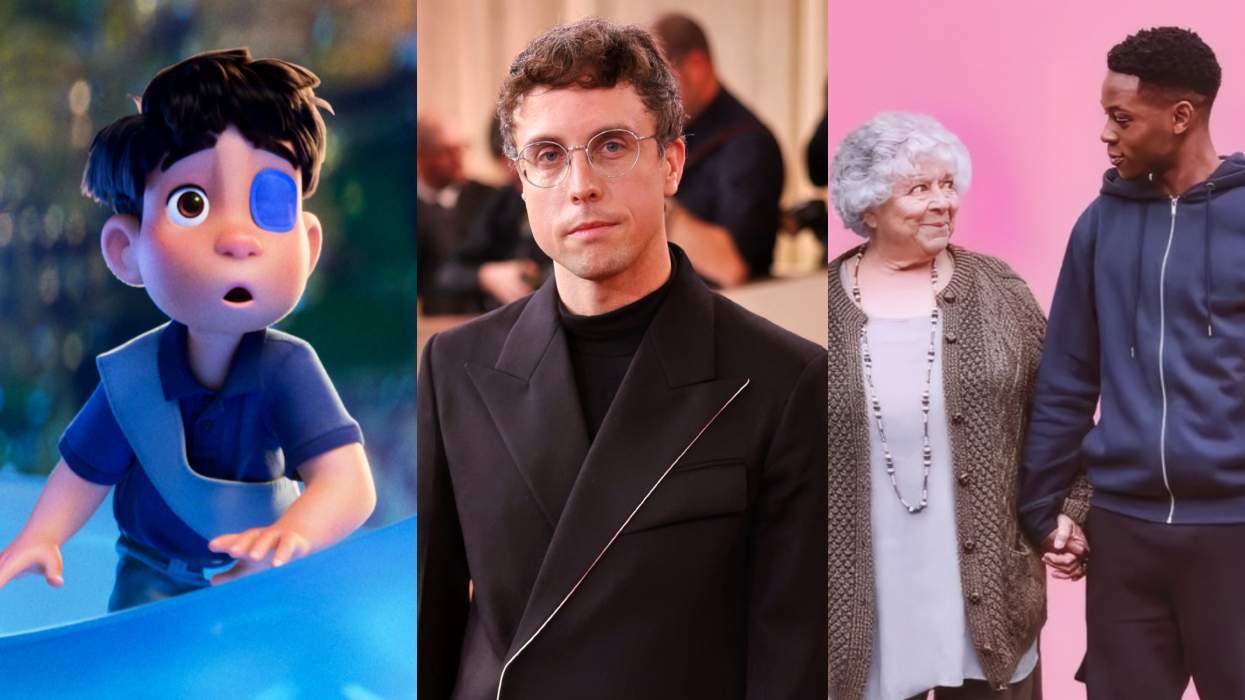The original Hairspray film, directed by John Waters, was released in 1988 -- and even then it was a period production. Set in Baltimore in 1963, the musical showed how a young heroine of size, Tracy Turnblad, helped bring racial integration to a local teenage dance show. The film's tone is light-hearted, but the issues it tackles -- race riots, segregation, interracial love -- highlighted a dark chapter of American history.
Unfortunately, history repeats itself. As Hairspray -- which found a second life as a Broadway musical in 2002 and again as a musical feature film in 2007 -- prepares for its latest iteration, Hairspray Live! on NBC, the country is once again in tumult. The Black Lives Matter movement has shown the world that police brutality against people of color is not a relic of the past. As early as last year, a state of emergency was declared in Baltimore, after the death of Freddie Gray in police custody brought on a period of civil unrest. Moreover, the recent election of Donald J. Trump to the presidency incited hundreds of hate crimes across the United States, with LGBT folks, people of color, and immigrants being targeted.
The world, it seems, needs Tracy Turnblad now more than ever.
In the wake of the election, this atmosphere hung over the sunny back lot of NBC Universal, which had been dressed as John Waters's vision of the Maryland city -- storefronts included Hairspray locales like the Hefty Hideaway as well as Easter eggs for fans of the gay filmmaker's oeuvre, such as Divine Pet Food, Edie's Eggs and Dairy, and Waters Plumbing. There, producers and cast members gathered to meet with members of the press. Throughout the day, these folks reiterated how recent events had reawakened them to the importance of Hairspray's inclusive message.
Director Kenny Leon, who had helmed a live musical for NBC, The Wiz, last year, addressed this relevance in a panel discussion straight out of the gate. Asked by moderator Dave Karger why "now is a good time for Hairspray," Leon jokingly responded, "Oh, wow. Man. Where were you last Tuesday?"
"It's actually a blessing to be in the throngs of this after last week," he said. "And it's emphasized the role of artists in our world. And so it gave me an opportunity to talk to the company about the importance of what we do."
"Technically, it's probably the largest thing I've ever worked on," he declared, after reviewing the scope of the production's music, staging, and choreography. "But it's probably going to be the most rewarding artistically, politically, socially, culturally."
Beside him on the set of the Corny Collins Show sat the producers of Hairspray Live!, Neil Meron and Craig Zadan -- gay men who, in terms of the art form of the televised and movie musical, "have almost single-handedly kept it alive," said Robert Greenblatt, the chairman of NBC Entertainment.
Indeed, Meron and Zadan have helmed all of NBC's live musicals, beginning with the popular 2013 adaptation of The Sound of Music starring Carrie Underwood. They were also longtime producers of the Academy Awards as well as the Chicago musical film starring Catherine Zeta-Jones and Renee Zellweger.
Zadan, speaking with The Advocate after the panel, revealed they chose Hairspray last year because they saw it was "needed" in the era of Black Lives Matter.
"We need something to heal people, heal this country. In our own tiny, minute little way, we hope that the people tuning in would feel some healthy, healing aspect of this show. Besides being entertained and laughing and crying and all that, it's still healing," he said.
Meron addressed the history of the musical film -- a genre that rose to prominence in the difficult times of the Great Depression and gained renewed significance during World War II.
"It really was more harsh economic times that drove people to the movie theaters for escape -- and the idea that they were able to escape into a musical is why they became more and more popular," he said. "And then, of course, followed by the war, it also added another layer to why people want to escape to a musical."
"Here we are again," Meron concluded, a nod to the current clime.
The performers of Hairspray Live! -- a diverse group ranging from Ariana Grande to Jennifer Hudson to Harvey Fierstein -- acknowledged the political and cultural significance of their production in modern times. This significance was even discussed during rehearsals.
"We've had a lot of conversations on set about the story and why it's so important and relevant to what's going on," said Garrett Clayton (King Cobra), who portrays Link Larkin. "You couldn't have timed something better to send a better message at this moment."
"Hairspray has never been irrelevant, which is in some ways heartbreaking," said Dove Cameron (Amber Von Tussle). Recent events had transformed how she and other cast members perceived their mission in putting on Hairspray.
"When we all got these roles, none of us were thinking of it in this exact light," Cameron said. "In light of recent events, I think it's definitely taken on a more emotional importance, [a] heightened place in our hearts, just as humans. ... This means something entirely different than when we started."
"I think it's cosmic," added Ariana Grande, who portrays Penny Pingleton, a teen who falls in love with a black boy in defiance of her mother's wishes. "I think it was meant to be. I think the universe had a plan and was like, OK. We need to show these people something uplifting, but also that will make you get the point."
"The show is probably more important today than even when it premiered," said Martin Short (Wilbur Turnblad). "It's a show about people on the wrong side of history and people on the right side of history. And right now we have an administration that's on the wrong side of history. And if people don't know it in their hearts, they're going to find out literally in their pocketbooks, etc., in the next couple of years -- not even discussing climate change and race relations."
"It's sad, life imitating art," remarked Derek Hough (Corny Collins). "But being a part of this, we feel a responsibility but also a privilege to be able to tell a story ... [about] the way things are in a certain way, and how the way things should be."
"We're all a family," he said. "We're a human race. We need to come together."
Harvey Fierstein portrays Edna Turnblad in Hairspray Live! He won a Tony Award for the role in the Broadway production. He recalled how in the early 2000s, he had to teach the young cast members of the Broadway production about segregation and racism by dividing rehearsals by race. Fierstein said these lessons were sadly not necessary for the current cast.
"This group of kids, very unfortunately, know it's true. And we don't have to educate them about it," he said of America's cruel history of racism. He noted of today's actors of color, "we didn't have to remind them they were black."
Jennifer Hudson, who won an Oscar for her portrayal of a '60s girl group member in Dreamgirls, noticed that her Hairspray role as Motormouth Maybelle required less historical research than anticipated.
"When I was doing Dreamgirls, I had to go back and look, OK what happened in the '60s? I don't find myself having to do that now," reflected Hudson, who said she only had to "turn on the news" to observe scenes of protest that mirror those in Hairspray.
"I think it gives this story that much more power and meaning," she said.
Fierstein believes a show like Hairspray might be the perfect vessel for healing racial divides. "The wonderful thing about Hairspray is, it's so gentle in its storytelling," he said. "It's the right message, but we don't beat you up" with moralizing.
In light of Donald Trump's election win, liberal-leaning Hollywood is faced with rethinking how a conservative presidency and societal unrest may influence its storytelling -- or the other way around. Paul Vogt (Mr. Harriman F. Spritzer) expressed a view that chimed with Fierstein's over the societal value of the musical, by acknowledging how entertainment can sway hearts and minds in ways that speeches or lectures cannot.
"You can yell at people and yell at people and disagree with them and fight with them, but then when you do it through comedy, sometimes they'll hear you," Vogt said.
"I think the job of artists and comedians becomes that much more important," said Difficult People's Billy Eichner (Rob Barker), adding, "I think it makes it even more important to raise your voice and be vocal about what's happening."
Maddie Baillio, the fresh-faced newcomer who plays Tracy, certainly wants her character's message of love and acceptance to reach beyond the echo chamber.
"We have so much hate right now in America and everywhere," she said. "It's bold to say, but maybe someone's who's flipping through the channels -- who doesn't believe in equality, doesn't have a lot of love in their heart for everyone -- maybe they stop on Hairspray. And maybe it will change their mind and spirits about just the way that they think, and maybe just love everyone."
"Hopefully," she concluded, "we change the world."
Hairspray Live! premieres December 7 on NBC. Watch the trailer below.















Charlie Kirk DID say stoning gay people was the 'perfect law' — and these other heinous quotes
These are some of his worst comments about LGBTQ+ people made by Charlie Kirk.